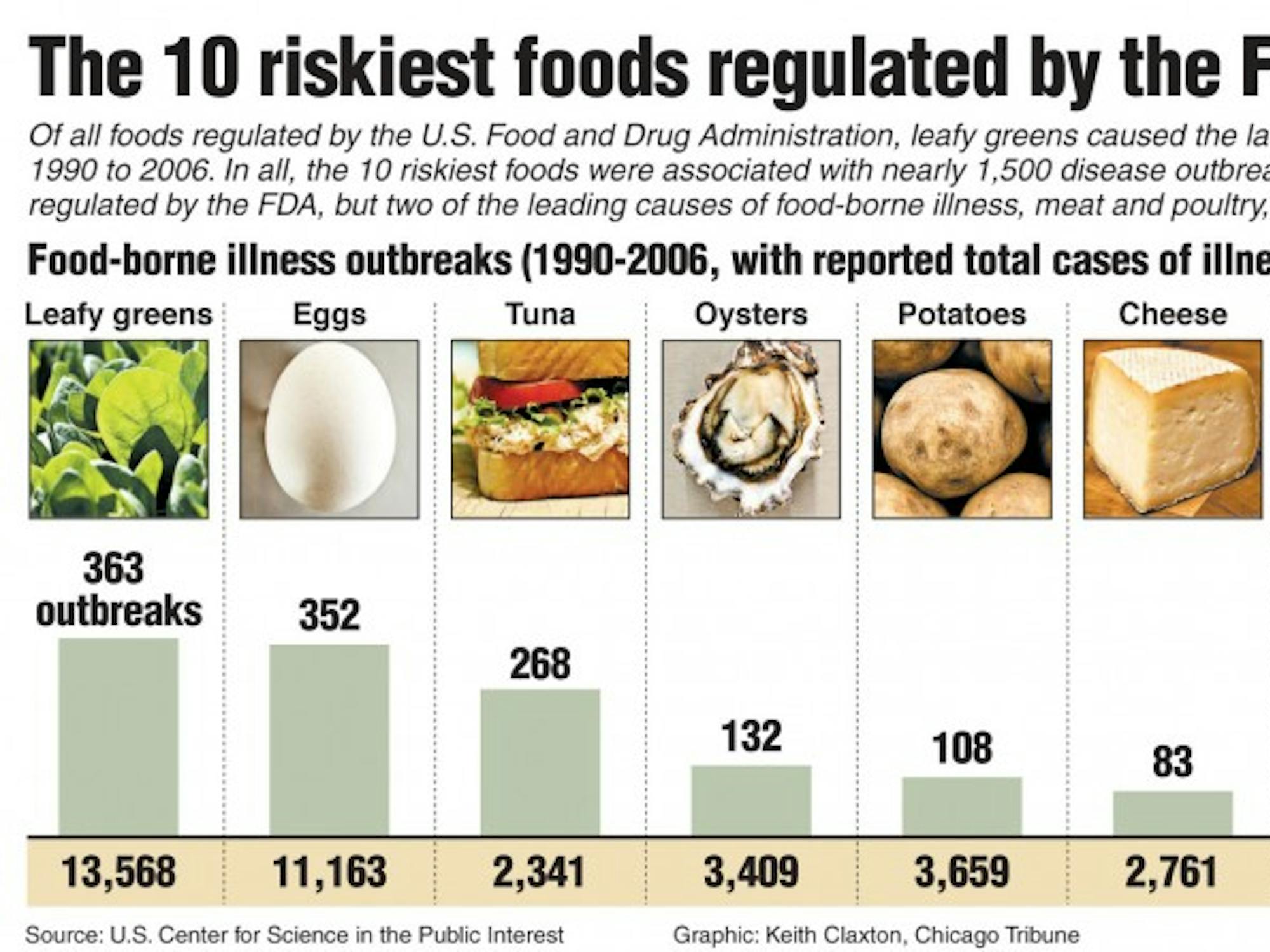In America today, many people adopt habits to improve their lives on a daily basis. Some run, some do yoga; but have you ever considered keeping yourself healthy by making sure your food is safe to eat?
Just a few reasons you might want to consider adding these food-safety tips to your life are: to improve the quality of the food you eat, to keep your food free of contaminants, to increase life expectancy and and to save money in doctors’ fees.
Keeping food that was made to be hot hot and keeping cold food cold is a large factor in food safety. Foods should be kept above 140 degrees Fahrenheit or below 40 degrees Fahrenheit.
Bacteria breeds rampantly between these temperatures. If you are going to serve food between these temperatures, please make sure you do it within two hours of bringing the food out of the safety zone.
Most people do not realize just because they have always been able to eat most food in unsanitary conditions, it does not mean other people, the elderly for example, do not have bad immune systems. Doing simple things like washing your hands and putting a meal on simmer until it is served can save costly trips to the hospital or even save a life.
If you have some food in the fridge that has been in there for a long time, the smartest thing to do would be to throw it away. But if you are dead determined to eat a questionable meal, do not just reheat it — recook it. You always have the option of putting a meal in the oven or the microwave until you hear sizzling and popping.
Another tip is an old one: If the is seal broken, don’t eat it. Broken seals are one of the first things you hear on the news whenever you hear of contaminants killing people. How many times have you heard of people putting something in jars and leaving it for others? Broken seals also mean bacteria has probably had weeks on the shelf to multiply in your food.
This especially counts for jarred foods like salsa. Foods can be on shelves or remain as factory inventory for weeks, and it is anyone’s guess exactly how sick you might get if you eat that. Save yourself a trip to the hospital, and if you do not hear the seal pop, toss the jar.
The final tip is to make sure you check expiration dates and keep your food well-refrigerated in order to make sure the food doesn’t expire. If you are interested in adopting a few better habits, you can always do research and develop a general knowledge for food safety.










